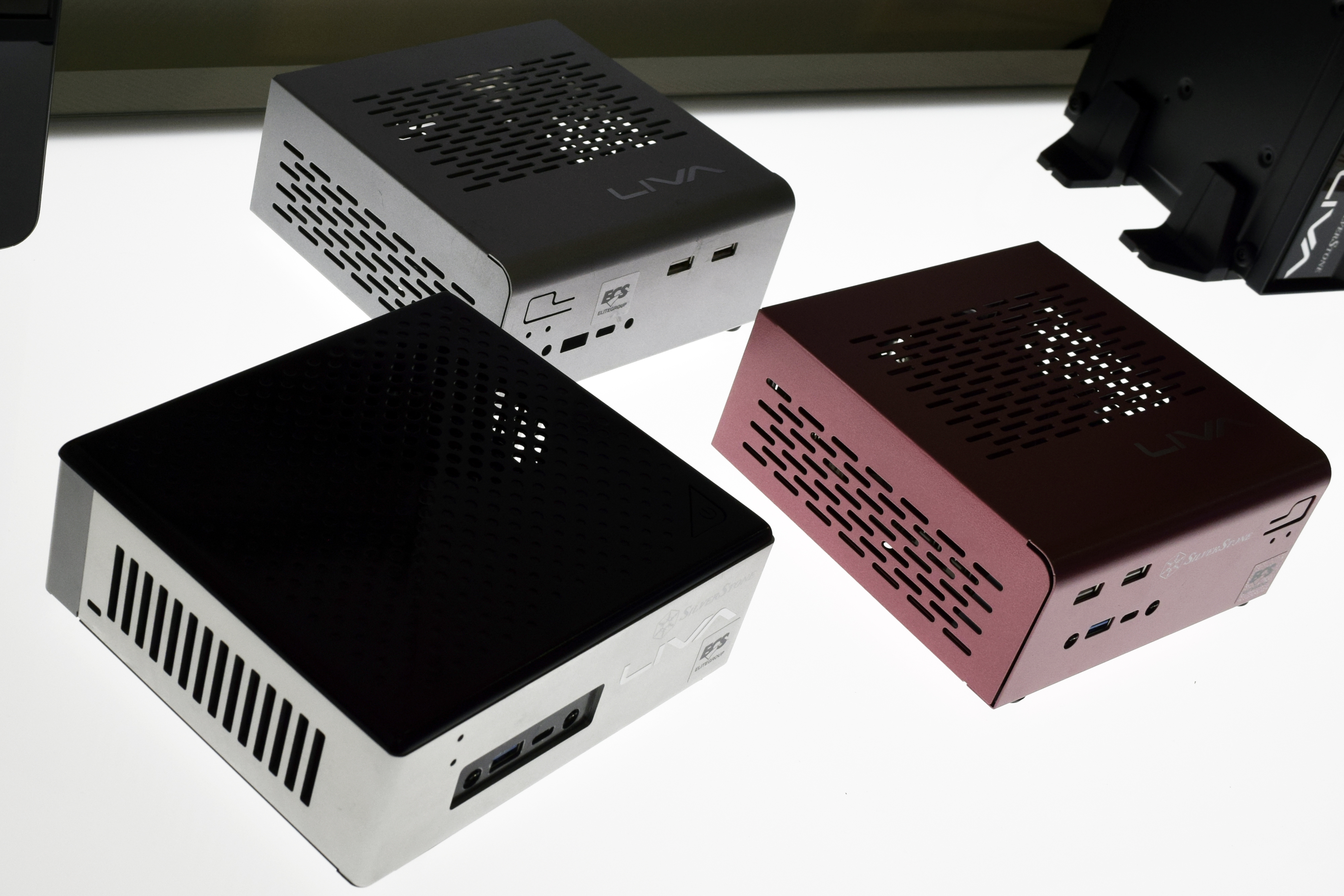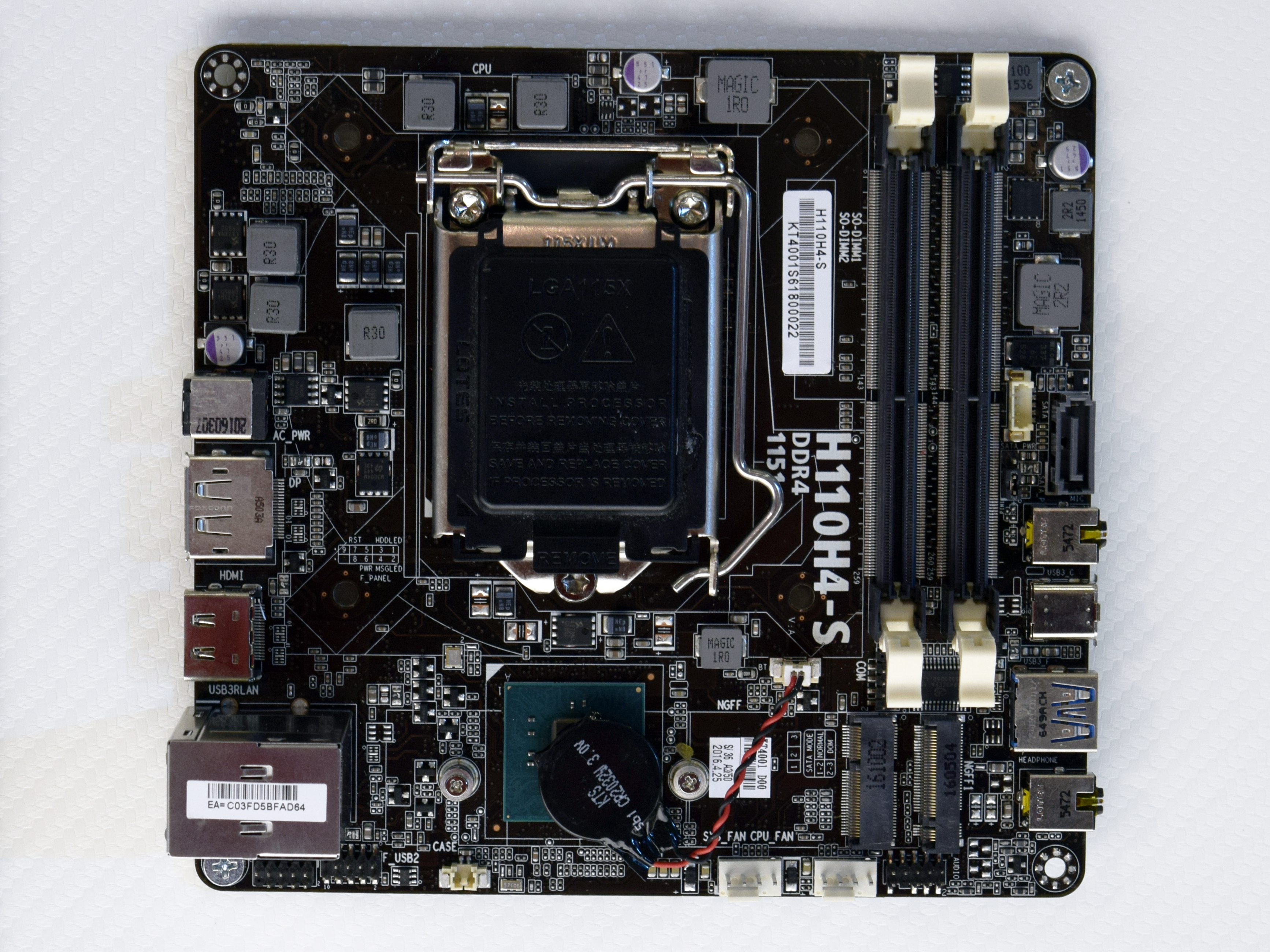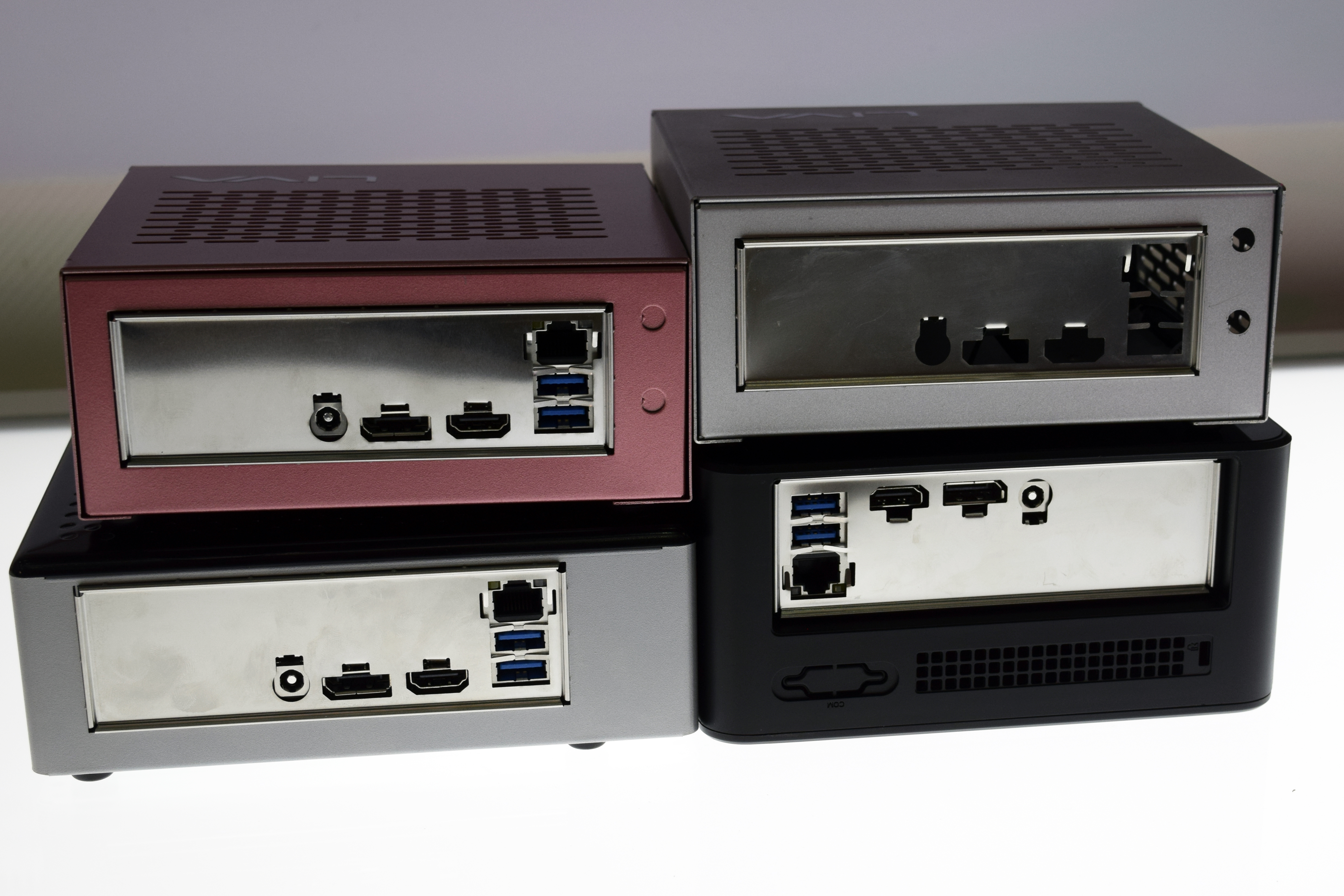First Interchangeable Mini-STX Cases With ECS Motherboard
At Computex, we got to see ECS’s new mini-STX motherboard up close for the first time. Although it's a fairly typical mini-STX board, ECS has one important innovation that other mini-STX OEMs do not: the option of interchangeable cases.
Thus far, all of the mini-STX motherboards we have seen can be used in just a single case each, because they do not use an interchangeable rear I/O shield. For example, Asrock and Gigabyte both use cases with pre-cut holes that perfectly mold to their respective motherboards, but those would not match up to the ports on any other mini-STX board.
This is a problem for potential system builders that would want to put together a mini-STX system, because they are limited to a single case choice for both Asrock’s and Gigabyte’s mini-STX boards. With ECS’s mini-STX board, you currently have three case options.
ECS achieved this by including a conventional rear I/O shield with its motherboards. ECS partnered with two different case OEMs to produce these first few cases. SilverStone created two of them, one of which is available in multiple colors, and the other is produced by a third company that ECS refused to reveal.
Eventually, ECS plans to bring more case designers into the loop so system builders will have a wide selection of cases to choose from for their mini-STX rigs.
There is still no word on pricing, but these systems will start to ship sometime before the end of this year.
Follow Michael Justin Allen Sexton @EmperorSunLao. Follow us on Facebook, Google+, RSS, Twitter and YouTube.
Get Tom's Hardware's best news and in-depth reviews, straight to your inbox.
-
bit_user I'm sorry to hear that STX dropped the ball on I/O points, but thanks to ECS for picking it up!Reply
Now, I just need someone to build a decent ARM-based STX board.
-
alextheblue ReplyBut, it's ECS...
Isn't ECS a joke?
I actually have had pretty good luck with ECS in the past, at least for stock-clock machines. Not sure how they are now, but I'd try them again if building for someone else (I mainly buy Asus or Asrock now for myself). If I was building an mSTX machine I'd be inclined to get one just because they're interchangeable. But that's not the most important part about this development anyway. The thing is that now OTHER motherboard makers may very well release mSTX boards with the same standard IO shield setup, and more case manufacturers could join in too. Ultimately if this catches on it will benefit everyone even if you don't use ECS. -
jasonc519 There is only one arrangement for the rear IOs, this is what STX spec defines and so all STX boards/chassis are compatible. Once ECS changed the rear IO, it is another proprietary design which cannot be called STX any more.Reply -
Quixit ReplyBut, it's ECS...
Isn't ECS a joke?
I like ECS, their boards and cheap and stable. I'd buy a high-end board from them if they made one.
-
killerb255 ReplyBut, it's ECS...
Isn't ECS a joke?
I got burnt on ECS motherboards in the early '00s. It seems like they've changed significantly for the better since then. -
Amdlova my last ecs board is a p45t and 890gx DEAD after 6 months with no guarantee look at power compsumation of the motherboard. and you see what will die first!Reply -
alextheblue ReplyThere is only one arrangement for the rear IOs, this is what STX spec defines and so all STX boards/chassis are compatible. Once ECS changed the rear IO, it is another proprietary design which cannot be called STX any more.
Link? The article says "Thus far, all of the mini-STX motherboards we have seen can be used in just a single case each" which kind of implies there is either no standard or they don't feel a need to adhere strictly to a single layout. It does seem rather limiting and I'd rather see conventional IO panels take over as a de facto standard if the actual "standard" is that restrictive.


